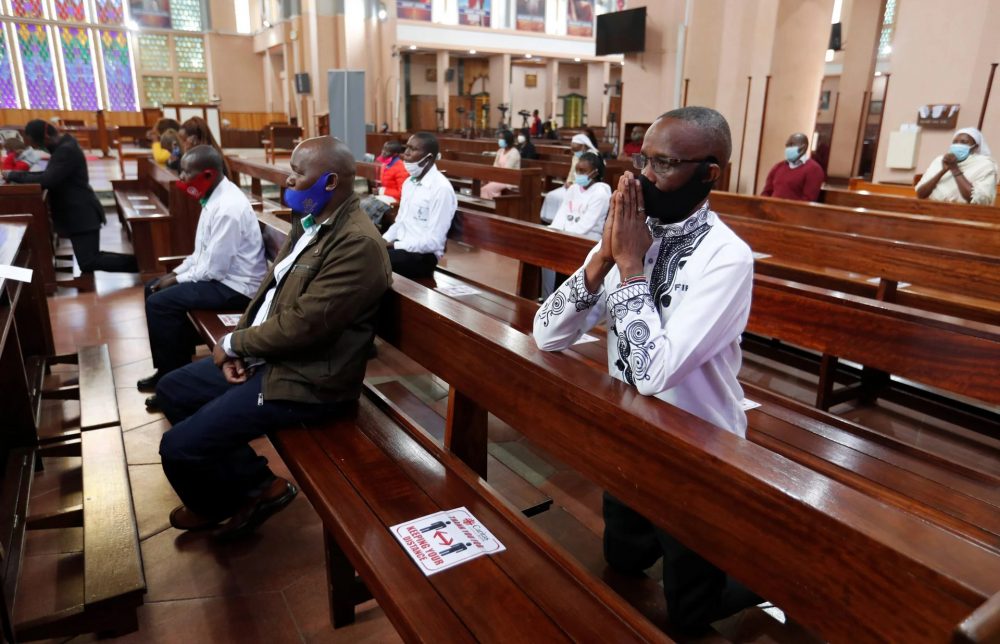Fr Paolo Consonni, MCCJ
“The bread that I will give is my flesh for the life of the world” (John 6:51)
I met Fr. Gianni in Kenya when I was a seminarian. I did some of my training in his parish, which was situated in a slum area. In that challenging environment, I learned a lot from his generosity and his joyfulness even in tense situations. His actions were totally centered on the Gospel.
I met him again many years later. He was already aging, and he had left Africa because of health reasons. Entering a new stage of life, he wanted to discern better God’s will for him. Therefore, he joined a 30-day retreat. His spiritual director invited Fr. Gianni to discover what his “new name” would be. The “new name” is the symbol of a new identity that we acquire when we answer God’s call. It represents the change He wants to bring about in us, and it is mentioned a few times in the Scriptures: “You shall be called by a new name that the mouth of the Lord will give” (Is 62:2; Rev 2:17). Simon received the name “Peter” (the Rock), and Saul the name “Paul” (the Little One).
Fr. Gianni eagerly started praying for this intention but no revelation came to him. “Well, I am just at the beginning of the retreat,” he thought. “It will come later.” But one day after the other went by, and still he had no idea of what his “new name” was.
Finally, the last day of the retreat arrived, but Fr. Gianni sadly had still no clue of what his “new name” that God had prepared for him would be. But in the final Eucharist, something happened. That day, he had been praying with the Gospel passage of the multiplication of the bread, where Jesus fed a large crowd of people with only five loaves of bread and two fish that a boy offered to him. During the breaking of the bread before the communion, his heart jumped for joy: “Broken bread! This is the name God wants to give me! I found it! This has always been my vocation, and this is how I have to live in the future: to be ‘broken bread’ like Jesus and share my life with the people God will put at my side.”
For the rest of his life, Fr. Gianni indeed lived up to the new name that God gave him: “broken bread,” and he constantly shared his time and energy, forming missionaries, encouraging lay people to be more involved in the evangelizing mission of the Church, and creating initiatives to support projects of development in areas of Africa that needed them. There was no retirement for him.
The people hearing Jesus proclaiming the discourse of the “Bread of Life” that we read in Chapter 6 of John’s Gospel were scandalized: “How can this man give us his flesh to eat?” (John 6:52). Yet, there is no better way to describe how Jesus lived and died than with the image of the “broken bread.” Christ’s life was a life of total self-giving in the encounters and events which marked his earthly existence, till his last breath on the Cross.
Fr. Gianni’s life mirrored the one of Jesus. Despite his fragile health, at 78 he was asked to help one of our communities in the Congo, and he generously accepted. He died a few months later, spending the last of his energy in the new mission he was called to serve. He was buried in African soil.
Let us remember that one of the names by which we describe the sacrament we celebrate this Sunday, the Solemnity of Corpus Christi (the Body and Blood of Christ), is the “Breaking of Bread.” The Catechism explains that “it is by this action that his disciples will recognize Christ after his Resurrection, and it is this expression that the first Christians will use to designate their Eucharistic assemblies; by doing so they signified that all who eat the one broken bread, Christ, enter into communion with him and form but one body in him” (CCC 1329).
When we receive the Eucharist, we are reminded that our life too, is united with Christ, “the one broken bread,” and becomes food that is blessed, broken, and shared for the life of the world. We are “broken bread” in our families called to give all that we have and all that we are for the good of our spouses and children. Like “broken bread” we are consumed by our work and studies, so that we might be useful in building a more just society and a better world. When we are sick, we offer our bodies, like “broken bread,” in union with Christ present in the sufferings of so many brothers and sisters all over the world.
All aspects of our existence are called to become blessed, broken, and shared. And by doing so, they become more meaningful. In a way, “broken bread” is the “new name” God gives us every time we receive the Eucharist!


 Follow
Follow


